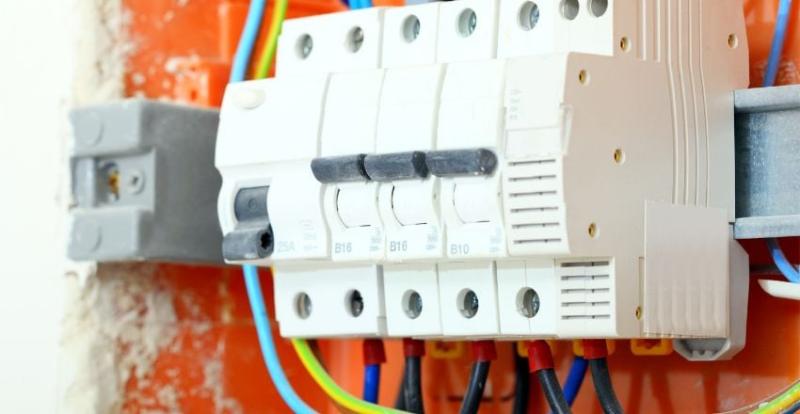In the world of industrial and electrical applications, contactors are crucial. They make it possible to switch circuits in a regulated manner. One of the most crucial parts in this area are the contactors, both AC and DC.
They both provide the same basic function, which is to allow and stop electrical currents. Despite this shared goal, there are a number of distinctions between direct current (DC) and alternating current (AC) systems due to their fundamentally different natures.
This article contrasts the technical design, functionality, and application differences between AC and DC contactors. Examining the distinctions between the contractors will help us understand them better. This will make it easier for us to comprehend how they meet the particular needs of the power sources.
When studying electrical systems, it is crucial to comprehend the differences between AC and DC contactors, with DC reversing contactors being particularly important in direct current applications.
DC reversing contactors offer precision direct current switching, enabling regulated switching and reversing, in contrast to their AC counterparts’ switching and changing current flow control.
In all industries where effective operation necessitates fine control over the current direction, they play a significant role.
Table Of Content
- 1 Similarities between DC Contactors and AC Contactors
- 2 Environmental Considerations
- 3 Contact Pressure
- 4 Protective Measures
- 5 Contact Materials
- 6 Maintenance Requirements
- 7 Differentiation between DC Contactors & AC Contactors
- 8 Principles
- 9 Material
- 10 Current and Hysteresis loss
- 11 Structure
- 12 Electrical Resistance
- 13 Operating Frequency
- 14 Final Thoughts
Similarities between DC Contactors and AC Contactors
Electrical contactors are frequently contrasted based on whether they are AC or DC. The differences and similarities between DC and AC contactors are quite intriguing.
These similarities can be used by electrical engineers and technicians to choose the best contractor for a certain application. We’ll look at a few of the commonalities between AC and DC contactors in this section.
Environmental Considerations
AD and DC It could be necessary to operate contactors in a particular setting. To prevent damage, contactors in corrosive or severe environments may require additional materials or safeguards.
Contact Pressure
Both AC and DC contactors need a particular amount of pressure on the contacts to work properly, which is a resemblance between both. This pressure guarantees that the connections are properly sealed, lowering the possibility of an arc or overheating.
Protective Measures
To maintain safety and avoid contact damage, preventative precautions are needed for DC and AC contactors. For example, a contractor might include overload protection or thermal safety to guard against excessive current or temperature.
Contact Materials
Both AC and DC contactors are made of materials that are fairly similar. Alloys based on silver are used to create AC and DC contactors because they are good conductors and can handle large currents.
Maintenance Requirements
Another thing that AC and DC contactors have in common is routine maintenance. All contactors should undergo routine inspections and cleaning to guarantee optimal operation and extend contactor life.
Differentiation between DC Contactors & AC Contactors
Direct current contactors (DC) and alternating current contactors (AC) have significant variances. The efficiency, dependability, and safety of your electrical system may be impacted by these variations.
The key distinctions between DC and AC contactors will be covered in this section. We’ll talk about the materials used, operating frequencies, electrical resistance, current and hysteresis losses, and their structure and principles.
Principles
Compared to AC contactors, DC contactors function differently. The magnetic field produced by the coil in DC contactors is what creates the force that pulls or pushes the contacts apart. However, AC contactors employ an other magnetic field that pulls or pushes the connections.
Material
Different materials are used by DC and AC contactors. While AC contactors use copper or silver alloys, contacts on DC contactors are frequently constructed of copper or silver.
Current and Hysteresis loss
Finally, the amounts of hysteresis and current loss varies between DC and AC contactors. While AC contactors show less current but more hysteresis, DC contactors show less hysteresis but larger current losses.
Structure
AC contactors and DC contactors have quite distinct functions. Smaller DC contactors often operate their contacts with a magnetic wire coil. AC contactors, on the other hand, contain numerous poles but work with the magnetic field produced by AC voltage.
Electrical Resistance
Because DC contactors have less electrical resistance, they can carry more current. AC contactors restrict the flow of current due to their higher electrical resistance. While AC contactors have a higher electrical resistance that restricts the flow, DC contactors have a lower electrical resistance and can handle higher current flows.
Operating Frequency
Another key distinction between DC and AC contactors is the operating frequency. DC contactors have a fixed frequency, whereas the frequency of AC contactors fluctuates with the applied voltage.
Final Thoughts
The differences between AC and DC contactors are due to both the intricate balance between engineering, technology, and application requirements as well as the inherent properties of direct and alternating currents. The use of both varieties of contactors is necessary for regulated switching.
Their applicability for various situations is determined by the minute variations between them. AC contactors are ideal for high voltage applications involving frequent load changes since they are built to handle the demands of alternating-current systems.
On the other hand, DC contactors excel in situations that call for accurate and reliable switching, such as those found in industrial equipment and battery-powered systems. Engineers and other experts who comprehend and respect the complexity of these contactors can decide on their implementation with knowledge. For a range of electrical and electronic applications, this will guarantee optimum performance, toughness, and safety.
Being a binge-watcher himself, finding Content to write about comes naturally to Divesh. From Anime to Trending Netflix Series and Celebrity News, he covers every detail and always find the right sources for his research.







